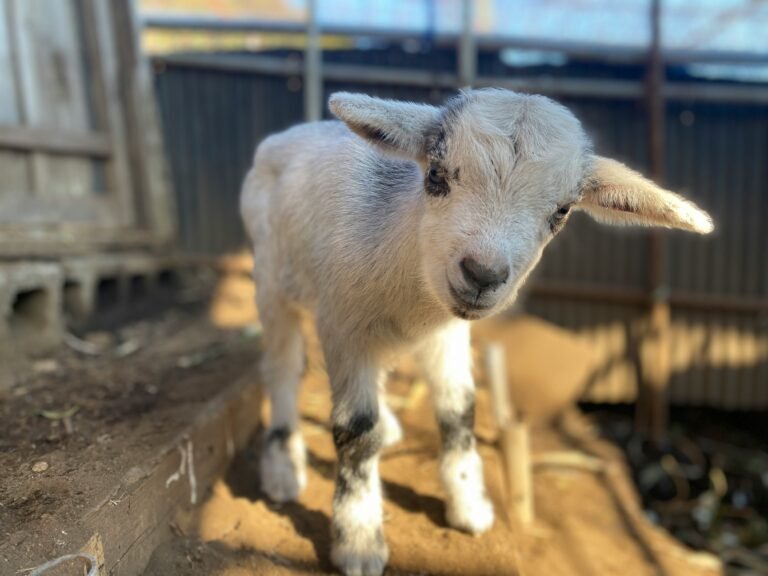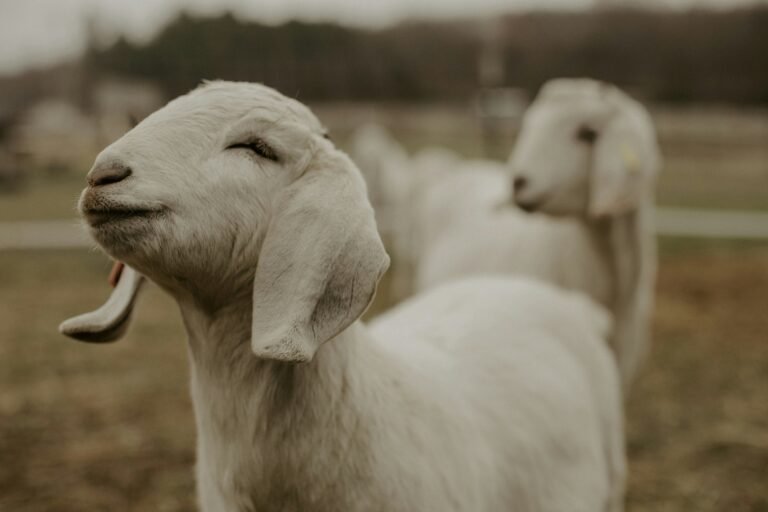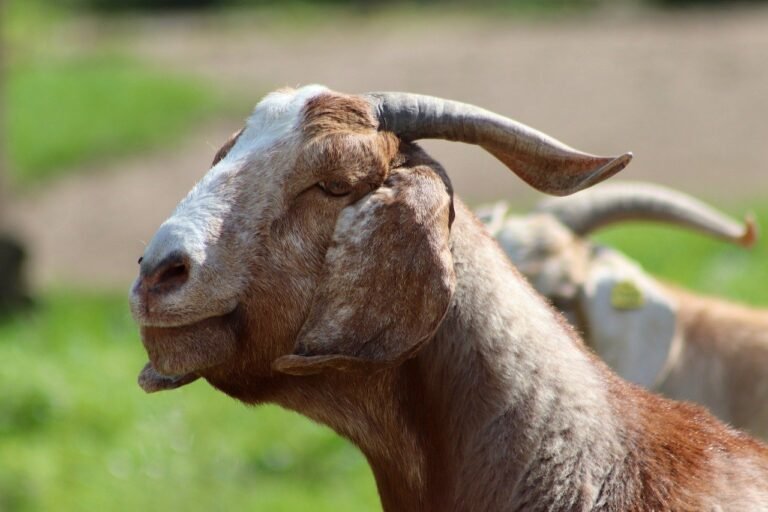
What To Do When a Baby Goat Won't Eat?
When you find yourself in the situation where your baby goat refuses to eat, it can be quite concerning. My baby goat, Nibbles, is usually enthusiastic about her meals, so seeing her turn away from food can be worrying. This behavior might signal an underlying issue or simply a temporary problem. Understanding the possible reasons behind my baby goat’s appetite loss and knowing how to address them can help you ensure her health and well-being. This guide will provide you with a comprehensive approach to tackle this problem effectively.
Identify the Cause of the Problem
Before taking any action, it’s crucial to identify why your baby goat isn’t eating. Here are some common reasons why baby goats may refuse food:
-
Health Issues: Illnesses such as pneumonia, coccidiosis, or internal parasites can affect a goat’s appetite. Nutritional deficiencies caused by these health issues can lead to a decreased desire to eat. If your baby goat is lethargic or displaying other symptoms, a vet visit is necessary.
-
Teething Problems: Just like human babies, goats go through teething phases that can cause discomfort and reduce their desire to eat.
-
Environmental Factors: Extreme weather conditions or changes in the goat’s environment can impact their eating habits. Ensure your baby goat is in a comfortable and safe space to avoid stress, which can further affect her appetite.
-
Dietary Changes: Introducing new foods or sudden changes in diet can upset your baby goat’s digestive system. Gradual changes in her diet are usually better tolerated and can prevent gastrointestinal issues.
-
Stress: Stressful situations, such as being separated from the mother or being introduced to new animals, can cause a temporary loss of appetite. Behavioral adjustments might be needed to help her adapt.
For my baby goat Nibbles, determining the exact cause involved closely monitoring her symptoms and consulting with a veterinarian to rule out any serious health issues and address any potential nutritional deficiencies.
Ensure Proper Feeding Practices
Proper feeding practices can sometimes resolve eating issues. Here are some steps to follow:
-
Feeding Schedule: Maintain a consistent feeding schedule to help regulate your baby goat’s appetite. Goats thrive on routine, and irregular feeding times can lead to appetite issues.
-
Quality of Feed: Ensure that the feed you offer is fresh and of high quality. Spoiled or moldy feed can deter your baby goat from eating. Ensuring the feed is nutritionally balanced can prevent deficiencies that might affect her appetite.
-
Hydration: Always provide fresh, clean water. Dehydration can cause a lack of interest in food and affect her overall health.
-
Variety in Diet: Offer a variety of feeds, including hay, grains, and goat milk. Sometimes, introducing different types of food can stimulate your baby goat’s appetite and prevent dietary monotony.
For my baby goat Nibbles, I’ve found that offering a mix of her favorite grains and fresh hay usually helps get her eating again and provides a balanced diet that supports her overall health.
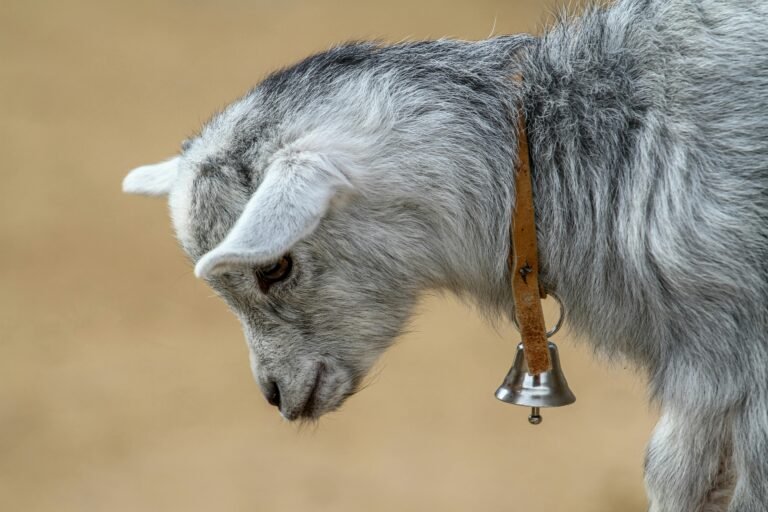
Monitor for Signs of Illness
If your baby goat’s appetite doesn’t improve, monitoring her for other signs of illness is essential:
Behavioral Changes: Look for changes in her activity level, behavior, or interaction with other goats. Behavioral adjustments may be necessary if she is stressed or unwell.
Physical Symptoms: Check for symptoms such as diarrhea, coughing, or nasal discharge, which might indicate an underlying health issue. These symptoms could signal gastrointestinal issues or other health problems affecting her appetite.
Body Condition: Assess her body condition regularly. Sudden weight loss or a decline in body condition is a serious concern and may indicate a need for dietary supplementation or medical intervention.
In my experience with Nibbles, keeping a close eye on her behavior and physical condition helped in identifying any potential health issues early and provided insight into necessary feeding interventions.
Consult a Veterinarian
If you’re unable to determine the cause of your baby goat’s lack of appetite or if her condition worsens, consulting a veterinarian is crucial:
Diagnostic Tests: A vet can perform diagnostic tests to identify any health issues. These might include blood tests or fecal examinations to uncover potential nutritional deficiencies or gastrointestinal problems.
Treatment Options: Based on the diagnosis, the vet will recommend appropriate treatments, which may include medications or changes in diet. Dietary supplementation might be suggested to address any deficiencies.
I had to take my baby goat Nibbles to the vet once for a similar issue, and it turned out to be a minor digestive problem that was easily treated with medication and dietary adjustments.
Provide Comfort and Care
Ensuring your baby goat is comfortable and well-cared-for can make a significant difference:
Comfortable Environment: Make sure she has a clean, dry, and comfortable living space. Stressful or uncomfortable environments can affect appetite and overall well-being.
Gentle Handling: Handle your baby goat gently to avoid adding any additional stress. Positive interactions can improve her mood and appetite, leading to better eating habits.
Regular Checks: Perform regular health checks to catch any issues early. Consistent care can prevent many problems from developing and support her overall health.
In Nibbles case, creating a calm and comforting environment and being gentle with her during feedings helped to get her back on track and supported her well-being.
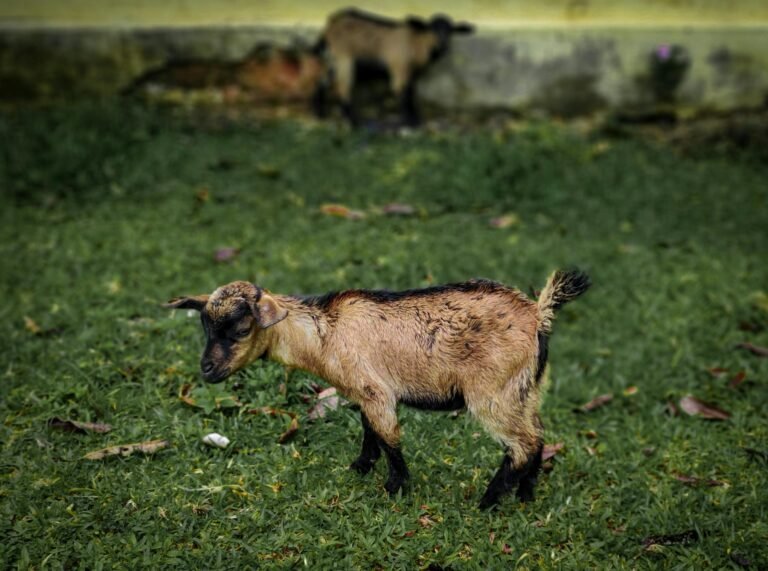
Explore Supplemental Feeds
If your baby goat is still not eating her regular feed, consider offering supplemental feeds:
Milk Replacers: Special milk replacers can be used if your baby goat isn’t drinking milk. These are designed to provide essential nutrients and help address any nutritional deficiencies.
Electrolytes: Electrolyte solutions can help maintain hydration and provide some nutritional value if she’s not eating much. These can be particularly useful in preventing dehydration.
Nutritious Treats: Small amounts of nutritious treats, such as goat-safe fruits or vegetables, can sometimes stimulate appetite and provide additional nutrients.
I’ve found that offering Nibbles a bit of goat milk replacer when she was fussy about eating helped keep her nourished until her appetite returned and provided a good source of essential nutrients.
Prevention and Long-Term Care
Preventing future issues and ensuring long-term health involves:
Regular Health Checks: Schedule regular vet check-ups to monitor your baby goat’s health and address any potential issues early. Preventive measures can help catch problems before they become serious.
Balanced Diet: Provide a well-balanced diet that meets all of her nutritional needs. This includes a mix of forage, grains, and fresh water to prevent nutritional deficiencies and support her overall health.
Environmental Enrichment: Ensure that your baby goat’s living environment is enriching and stimulating to keep her happy and healthy. A stimulating environment can prevent stress and support good eating habits.
Maintaining my baby goat Nibbles’ health with regular check-ups, a balanced diet, and an enriching environment has helped prevent many issues and keeps her thriving.

Conclusion: Baby Goat Won’t Eat
Dealing with a baby goat that won’t eat can be challenging, but understanding the potential causes and knowing how to address them can make a significant difference. By identifying the cause, ensuring proper feeding practices, monitoring for illness, consulting a vet if needed, providing comfort, and considering supplemental feeds, you can help your baby goat get back to her happy, healthy self. Regular preventive care and a balanced diet are key to maintaining her well-being.
In summary, addressing your baby goat’s eating issues involves a combination of attentive care, proper feeding practices, and timely veterinary intervention. Keeping a close watch on her health and environment will help ensure she stays healthy and happy.
The journey with Nibbles has taught me that patience and attentive care are crucial when dealing with eating issues. With the right approach, even the most concerning problems can be resolved.
RELATED POSTS:
At Goaty Pedia, we’re passionate about all goat things! Our mission is to be the ultimate resource for goat enthusiasts, breeders, and caretakers who want to learn about and care for these remarkable animals. Thanks for visiting.
Web Crew © 2024 All Rights Reserved.

